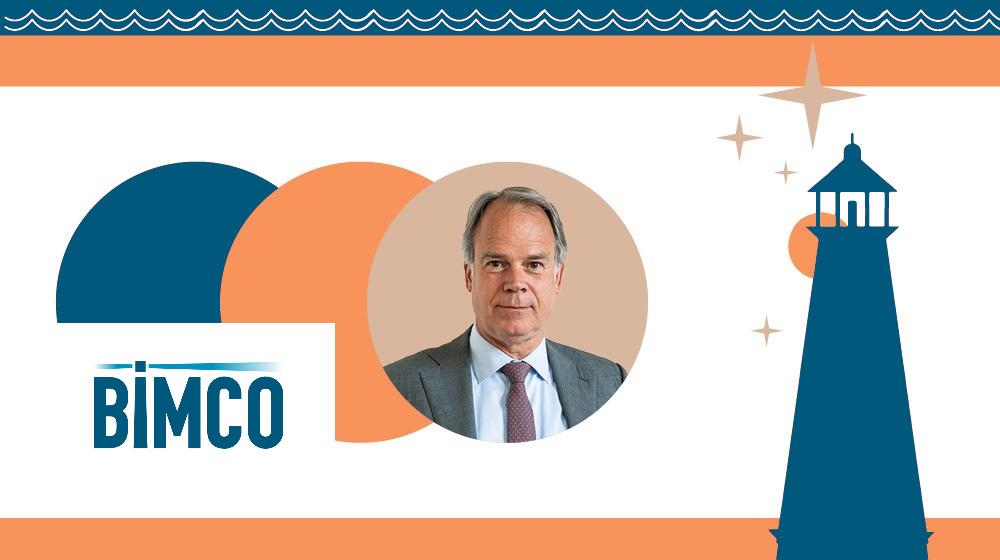These are challenging yet exciting times to be a part of the maritime industry. The tides are shifting and taking action to construct a sustainable maritime global industry cannot be pushed back anymore.
Here, Nikolaus H. Schües, President of BIMCO and one of the speakers at Maritime Cyprus 2023, addresses the IMO’s strategy, the challenge of sustainability and the importance of technology and sustainability growing side by side.
Critics say that the IMO’s strategy on reducing GHG emissions is fatally flawed. With the global shipping industry carrying up to 90% of commercial goods and being responsible for 3% of global CO2, is its 2040 target really possible?
Some critics may view the 2023 IMO’s strategy in that way but, in our view, the updated strategy is groundbreaking. There is no doubt that reducing the world fleet’s total GHG emissions by 2040 by more than 70% compared to 2008, which is what the IMO member states have agreed, will be a tremendous task. In fact, because the shipping industry continues to grow, we need the GHG reduction at ship level to be closer to 90% to reach the 2040 deadline of the strategy. Many new ships operating today will still be operating in 2040 and to achieve an average 90% emissions reduction, these ships should be prepared to burn zero-emissions fuels the soonest. 2040 is only 17 years away and while it may still seem to be some time in the distant future, every stakeholder must react now. The entire maritime industry is facing monumental change in the way ships must be built, operated and fuelled. There are flaws to be found in many regulations but BIMCO is grateful to the IMO for setting out in clear terms the pathway and timeline that the shipping industry needs to follow to transition every ship in the world fleet to a net-zero GHG emission future.
The shipping industry has voiced its objections to the carbon tax proposal embedded in the EU’s ‘Fit for 55’ proposals, suggesting that it unfairly places most of the responsibility for cutting down emissions on shipowners. Will this reaction have an impact on the final format of these proposals or are you confident that broad agreement can eventually be reached?
The EU ETS Directive has been amended to include shipping. That’s a fact and we have to accept it. But how it is implemented is another question which has not yet been fully answered. At BIMCO we are working on that, for example regarding the meaning of the term “shipping company.” Is it the registered owner or is it always and only the ISM company? Or is it somewhere in between and possibly open to negotiation? The matter is crucial for the formulation of contractual agreements in the industry. Another issue is the substantial red tape involved in handling allowances and transferring these between different entities in the industry. Allowances are regarded as financial instruments and specific rules must be adhered to whenever such instruments are changing hands. Anti-money laundering and “know your counterpart” rules are important in this respect. It is foreseen that entities needing to be involved must provide transparency about their ownership. The cost of trading on Europe will rise as the cost of compliance will be significant. Ultimately these costs will have to be borne by European consumers.
Is increasing regulation in the shipping sector around environmental protection challenging maritime investment? Can sustainability and technology go hand in hand?
That is a very important point. Our members are rational decision-makers and every investment must be a business case. Allow me to answer two-fold: Firstly, COVID-19 showed a fairly strong price insensitivity of our industry as a whole in that sense and, given the global reach of the IMO, any cost due to regulation will finally be paid for by the consumer. Secondly, I do not see sustainability and technology as competitors. Of course they have to go hand in hand. There are already digital solutions available which can make a difference today. Take the example of electronic bills of lading. Every year, our ocean carriers issue around 45 million bills of lading, the majority of which are still paper-based. However, end-to-end digitalisation of trade documentation can cut costs, make international trade more efficient, reliable, secure and sustainable. Thus, we have launched the BIMCO “25 by 25 Pledge”, which aims to accelerate the uptake of electronic bills of lading. Also, a few weeks ago, we launched the “Declaration of the electronic Bill of Lading”, together with our FIT Alliance partners, to secure a commitment from all stakeholders in international trade to collaborate on driving digitalisation within their industries. We also strongly support initiatives such as the Blue Visby Consortium, which works towards reducing greenhouse gas emissions from ships by about 15% through a multilateral platform which optimises ships’ arrival times at their destinations. A 15% cut is a substantial cut on the path to reducing emissions and proves the point that investing in digital solutions can improve efficiency, help cut emissions and protect the environment. You see, sustainability and technology complement each other.
This interview first appeared in the September edition of GOLD magazine. Click here to view it.









